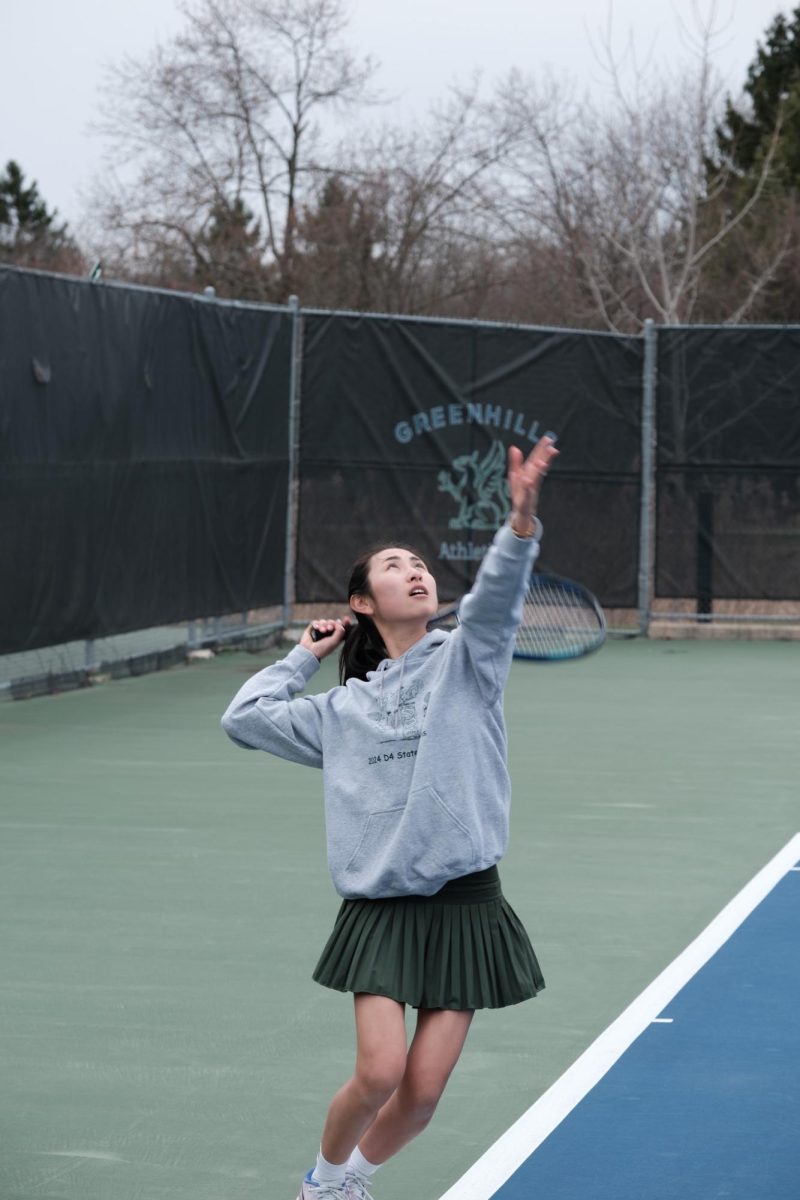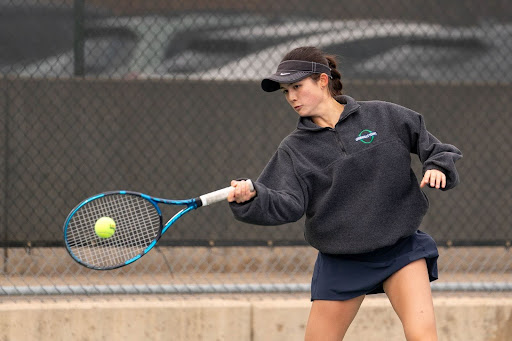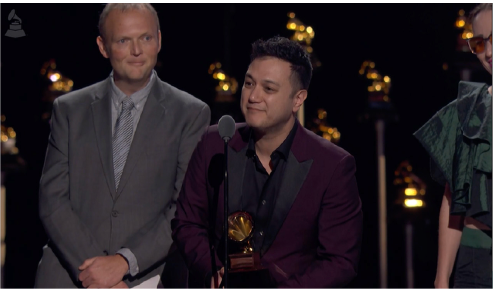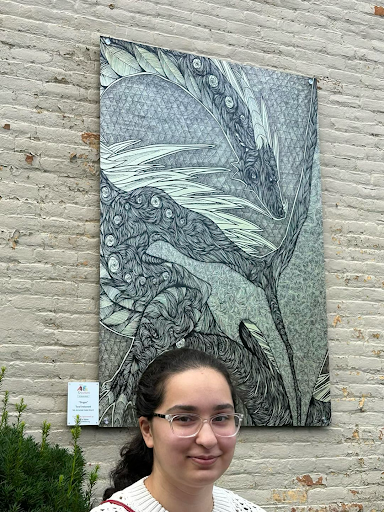The show must go on: faced with Covid-19 precautions and inspired by modern culture, Greenhills’ Upper School play returns
February 9, 2022
Though Covid-19 protocols are still a persistent challenge for the theater community, Upper School play director, Laura Bird, has decided to instead use them to her advantage, finding a way for them to enhance rather than hinder the performance. To do this, Bird ruled that, to keep authenticity, the entire cast will wear full-face traditional Greek theater masks.
“I knew we would be covering half our faces anyway, so I decided to pick an ancient Greek play because if you do that in the style of the ancient Greeks, the actors were [fully] masked,” Bird said. “That’s a whole different kind of acting . . . we get so much information from people’s faces, and everybody’s aware of how much harder it is to communicate with half the face gone now, so I just decided to make it worse and get rid of the forehead too!”
Dixon Miller ‘23 and Andy Zhang ‘24 both said Bird’s decision is appropriate, but agree that conveying emotion will be more difficult without the face.
“A lot of expression you do with your eyebrows, which now you can’t do, so you just have to be more mindful to use body movements to express emotion rather than use facial movements . . . it’s something that you definitely have to get used to,” said Zhang.
The masks to be used for the final performance are not an exact replica of the original ones used in ancient Greek theater, but they are a best-guess imitation made of Neoprene instead of traditional organic materials such as leather, linen and human or animal hair. Currently, the cast has been rehearsing with practice masks, but the real masks will be soon available.
According to the actors, conveying emotion without facial expressions may be difficult, but they enjoy being able to adjust to the challenge together. This they wouldn’t have been able to do last year. Due to stricter Covid-19 protocols and hybrid learning, last school year’s spring musical was forced to divide into many small skits instead of the usual one large group production.
“[Last year was] so, so different. For the spring musical last year, we couldn’t rehearse together at all. It was everyone rehearsing inside their own homes. Therefore, everyone had to do their own little skit, and they weren’t connected in any way, which isn’t ideal, but it’s what we had to do,” Miller said. “Now that we can rehearse in the same space . . . we can tell an actual story from beginning to end.”
Not only is the cast’s ability to create a group performance regained, but other aspects of theater culture are also much better when in-person rehearsing together. Students are excited that they are able to interact with other actors again. Being together in-person benefits their rehearsals by improving the cast chemistry.
“There’s a camaraderie to being in the rehearsal room together that people were missing [last year],” Bird said.
Keeping last year’s desolation and modern culture in mind, Bird put intention into choosing the specific tragedy the cast is performing: Antigone by Sophocles. In the play, Antigone, the king’s niece, is caught in a conflict between wanting to honorably bury her older brother and obeying the king’s order, which is that he should not be buried because he is a traitor. Tragedy ensues.
“All Greek tragedies have an expandable chorus . . . I knew I wouldn’t have to make any cuts — I didn’t think that was fair after all the devastation of last year,” said Bird. “The question of the state making rules that don’t match your moral compass and what your responsibility is is pretty timely. That’s why [the play] has lasted all these thousands of years.”
Miller agrees with this view, but also believes the sexist and misogynistic undertones in the play are especially relevant today. “It really ties back to feminism. The title character is a woman, and yet so much of the play is filled with sexism. And even though Antigone is the main character, there is a character who is male with more lines than her . . . All of the other male characters are so afraid of this powerful woman and even now men are still afraid of women with power. So definitely a feminist tie-in there.”
“People are looking for a comedy right now, something more light, but there’s a lot of themes in the tragedy that connect to our modern day. There’s a lot of benefits to this tragedy. I’m really excited for people to see it,” said Miller.

















